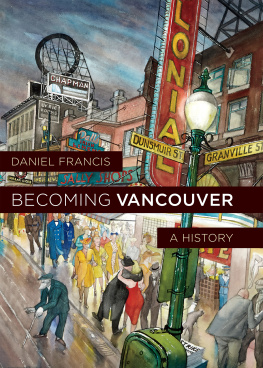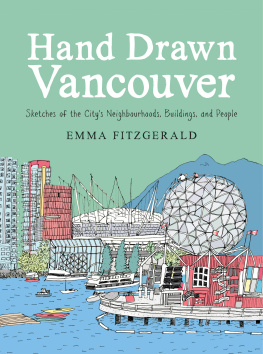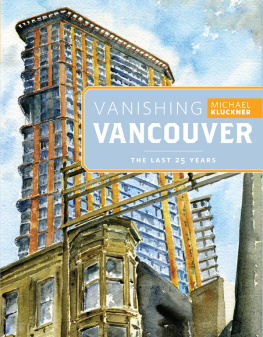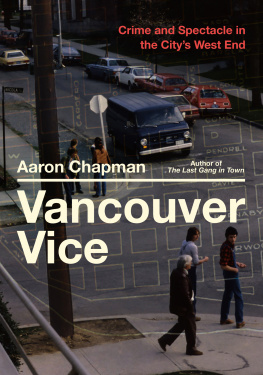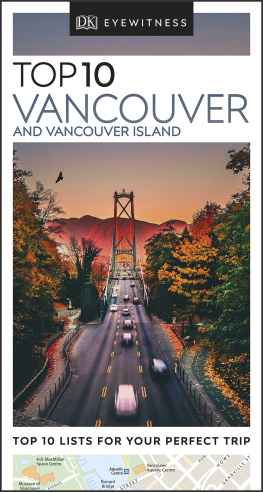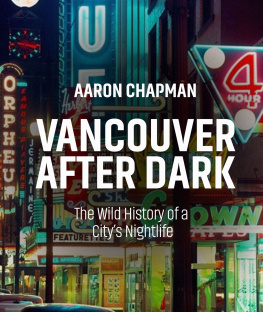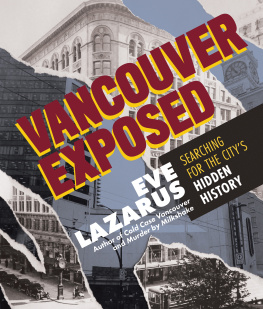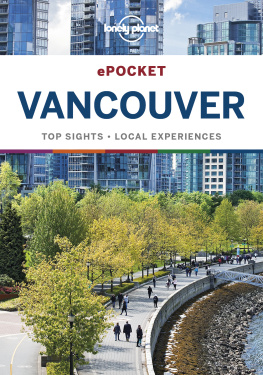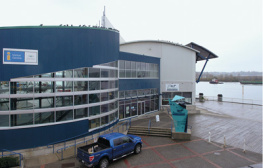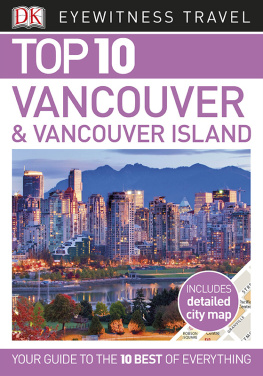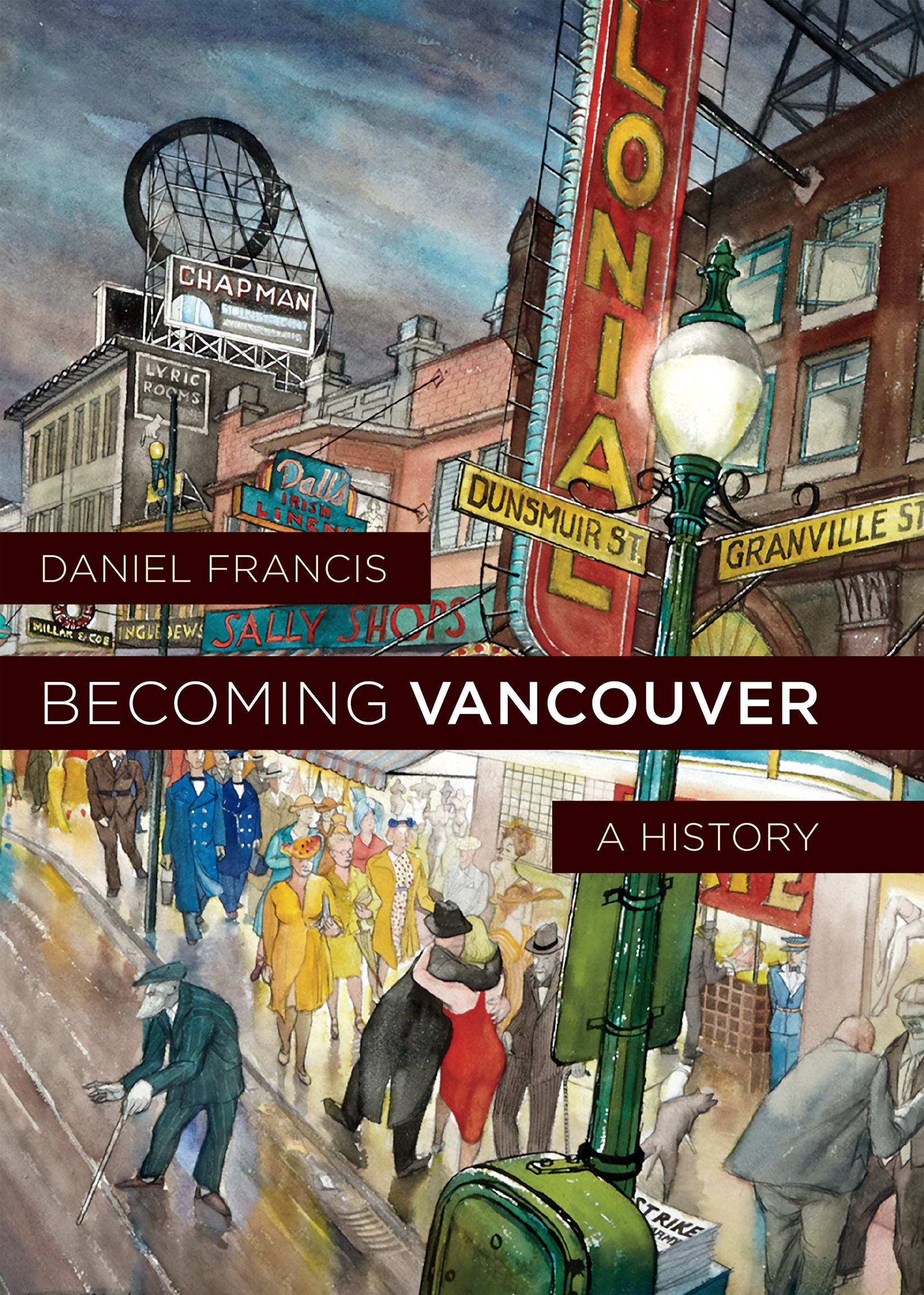Becoming Vancouver
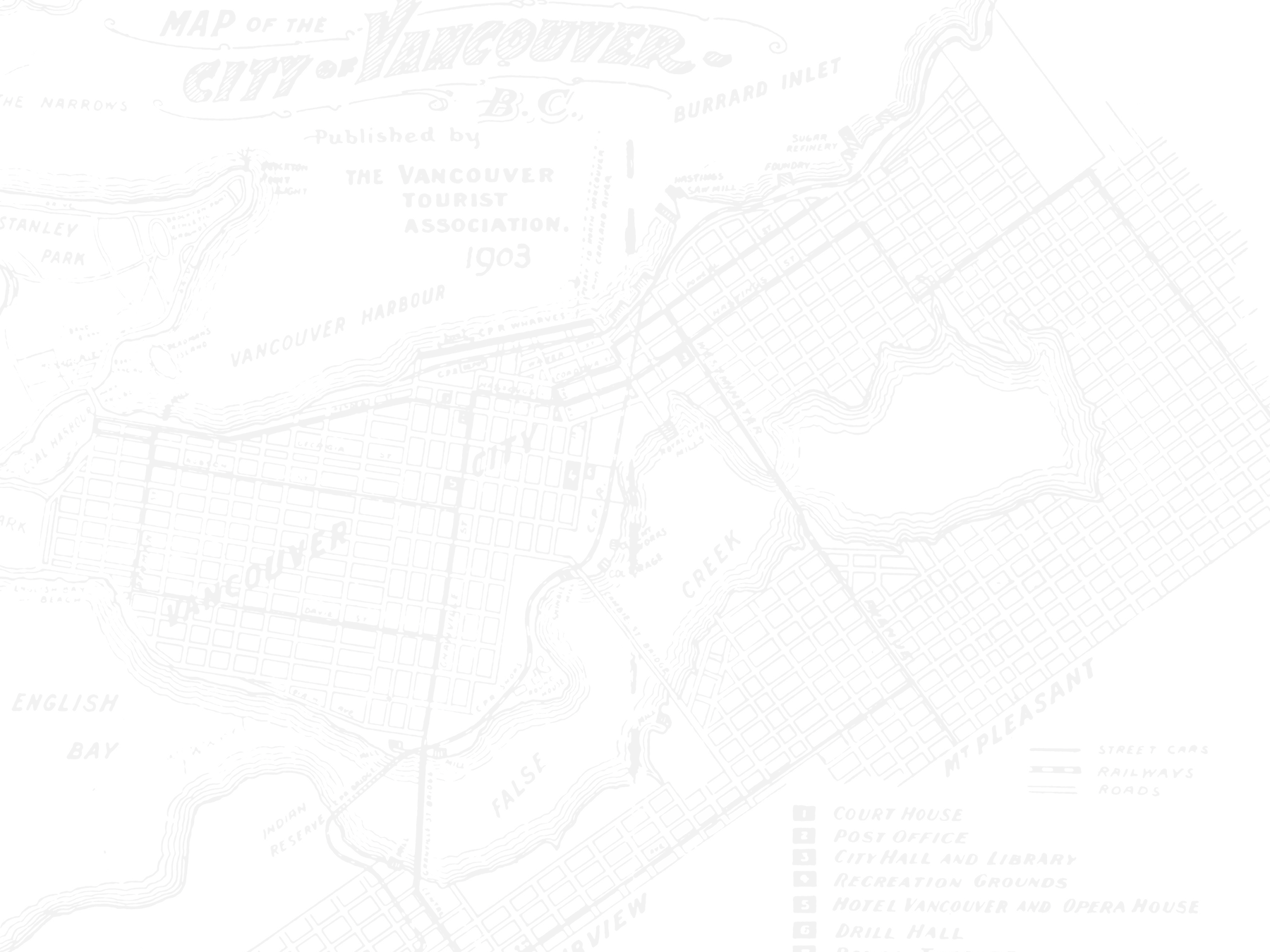
Daniel Francis
Becoming Vancouver:
A History

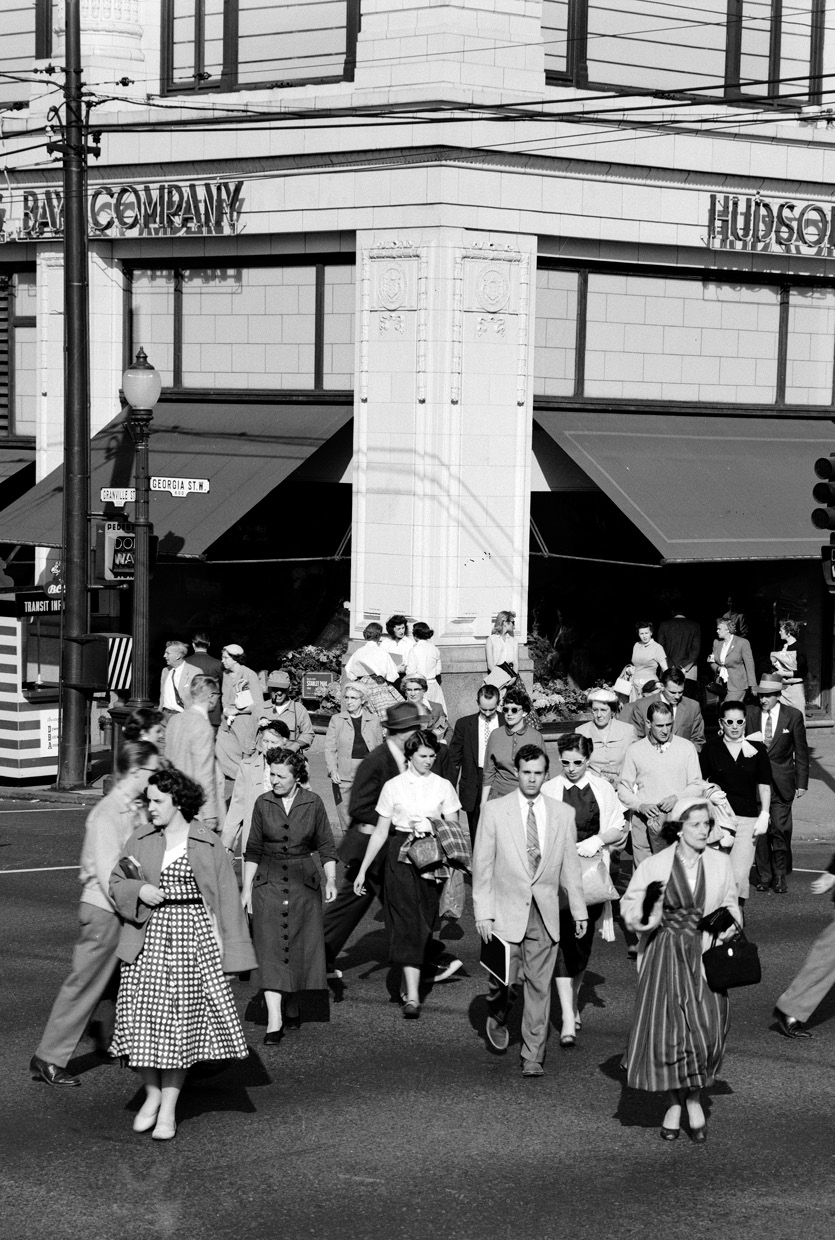
Contents
Sometimes the sea-gulls fly over the city streets, and their mewing cries disturb the busy or distracted minds of the townspeople going about their business. Something shakes for an instant the calm of a man crossing the street when he hears the cry of a gull above the traffic, something that is not a sound but a disturbing, forgotten, unnamed desire, a memory The cry of the wheeling gulls in the city streets.
Ethel Wilson,
The Innocent TravellerIntroduction
Vancouver is blessed with one of the most stunning locations in the world. Lying at the mouth of a major river in the shadow of a majestic range of snow-capped mountains on a picturesque inland sea, with a mild climate and boasting one of the best deep-water ports in the world, Vancouver consistently finishes near the top of any ranking of the worlds most beautiful cities. Yet residents of the place have never agreed about how best to exploit the advantages that their location has conferred upon them.
Another way of saying this is that Vancouver exists in tension between competing ideas of itself. On the one hand it is a world-class city striving for a size and a sophistication that might rank it on a par with any of the great metropolises of the world. On the other hand, it is a liveable city maintaining a slower lifestyle and keeping development to a human scale while making the most of its privileged natural assets. This tension plays out in almost every aspect of urban life: preservation versus redevelopment; density versus suburban sprawl; bike paths versus car culture; lotus land versus global metropolis; Green City versus City of Glass.
There is nothing new about such choices. Since the city was created in 1886, different images of its future have contended for predominance. To take just one example: In the spring of 1899 on a tiny island in Vancouvers inner harbour, war was declared. At issue was control of the citys showpiece, Stanley Park. Who did it belong to? Who had the right to say what went on within its borders? And there were other issues at stake as well. Should the preservation of green space take precedence over economic development? Did the interests of the west sides social elite carry more weight than the needs of the east sides working class? Ultimately, what kind of place was Vancouver going to be? Such a weight of significance for such a small scrap of land.
The conflict began almost comically, with no indication that it would drag on for forty years and require resolution in Canadas highest court. Early in 1899 the federal government gave a Seattle lumberman named Theodore Ludgate a twenty-five-year lease on Deadmans Island, a 2.8-hectare chunk of rock in Coal Harbour that at low tide wasnt even an island at all. Originally the local Indigenous people had used it as a burial ground, hence its name. More recently it was home to a community of squatters. For $500 a year, Ludgate had permission to clear-cut the site and build a sawmill. But the city believed that it owned the island, which it considered to be part of Stanley Park. One April morning, when Ludgate and his logging crew arrived to begin work, they found their way blocked by the mayor, the appropriately named James Garden, and a troop of twenty-five police officers. The moment Ludgate and his men started felling trees, the police arrested them. The first shot in the Battle for Deadmans Island had been fired.
Time after time the matter has come up in the City Council, wrote a reporter in the Daily World, and on countless occasions has the burning question been discussed on the street corners of Vancouver. But that gave rise to another question, the still unresolved issue of who actually owned Stanley Park: the city or the federal government.
Three weeks after the initial skirmish, Ludgate returned and managed to supervise the clear-cutting of half the island before police again received orders to stop him. When Ludgate refused to withdraw, the police forcibly handcuffed him and hauled him off to jail. After a reading of the riot act, the rest of the men dispersed. Subsequently the province sued the federal government, claiming ownership of the island on behalf of the city. In 1901 the BC Supreme Court ruled in favour of the province, but that was just the beginning of the legal battle. On appeal the federal government won its case for jurisdiction over the park. Then in 1906 the final authority, the Judicial Committee of the Privy Council, ruled again in Ottawas favour, meaning that Ludgates lease was confirmed and work could go ahead.
In the end the Battle for Deadmans Island turned into a war of attrition. About 150 squatters occupied shacks and floathomes along the shore and many refused to leave, despite Ludgates best efforts to evict them. There was yet another court case, and in the end no mill was ever built. Following Ludgates death in 1918, ownership of the island reverted to the federal government. In 1930 the citys Parks Board gained jurisdiction over the site and evicted its tiny village of squatters. During World War II the Department of National Defence took control, and since 1944 it has been the site of HMCS Discovery, a naval cadet training facility.
As inconsequential as the Battle for Deadmans Island might appear in retrospect, it was an early manifestation of the tension that has always animated Vancouvers history. The urban geographer Walter Hardwick made the point in his 1974 book Vancouver, when he wrote that there is a conflict in images of the region between it being a place of opportunity for development/exploitation and a place of quality that must be protected from the forces of international capitalism. As a member of city council in the early 1970s, Hardwick played a key role in the deindustrialization of the south side of False Creek and the development of the human-scale residential community that was built there, including the transformation of Granville Island into an urban showpiece. Compare False Creek South to its north side, which was sold to a Hong Kong developer following Expo 86 and is now a forest of glittering high-rises. These two neighbourhoods look across the creek at each other and are linked by a bicycle path, but they are worlds apart. They represent Vancouvers contradictory impulses. One impulse wants to protect its location in order to build an affordable, green, liveable city. Another wants to leverage its location to make the city ever more attractive to the forces of global capitalism. Vancouver is an antithesis looking for its synthesis; it is a city with a split personality.
Not surprisingly for a place that prides itself on its setting, Vancouver has always been about real estate. The early settlers appropriated the land from its First Nations inhabitants. Then most of it was handed over to a private railway company in a transfer that was generous even by the standards of its time. The Canadian Pacific Railway received the grant in return for locating its Pacific terminus on Burrard Inlet, and the company has been selling it back piece by piece ever since. In the citys early days, speculating in property was the source of many personal fortunes, as well as a popular recreational pastime. Now, in our own day, the affordability crisis of the 2010s is the latest example of the way that the property market preoccupies the city. Along with the weather, real estate has always been the main topic of conversation in Vancouver.

